Social Justice Exchange (SJE) held a march on campus in protest of the DACA (Deferred Action for Childhood Arrivals) repeal on Monday, Oct. 16, which began in front of the Celtic cross monument on the Great Lawn.
The repeal, referred to as a “wind-down” by Attorney General Jeff Sessions, was announced by the Trump administration early last month and effectively ended the program that provided work authorization and deportation relief for undocumented people who were brought into the U.S. as children.
The event initially drew about 15 participants including students, alumni and faculty. Several stayed for the march which led to the D’Angelo Center, and then circled back around campus to the Celtic cross monument where a discussion was held about the ramifications of the repeal, as well as the state of student activism on campus.
Because the march took place outside of common hour, participants were encouraged to speak among themselves but refrain from yelling or shouting, so as not to disturb ongoing classes. According to LJ Vogel, head of the Social Justice Exchange, the march was scheduled to prevent infringing on the “DACA for Dummies” workshop which took place earlier that same day in the D’Angelo Center.
“We don’t, as students at this University in particular, know what goes down out there. We often don’t talk about the people here who might be undocumented, the students on this campus who benefit from the DREAM Act,” Vogel, a senior, said, referring to the Development, Relief and Education for Alien Minors Act, a piece of unpassed legislation concerning issues which DACA addressed. “I think that it’s really important that we start to have conversations about how this is affecting us as a community.”
Vogel, who moderated the discussion, posed a series of questions for attendees such as their perception of the University’s response to the DACA repeal and the far-reaching effects of the repeal itself.
Those in attendance agreed that the University’s response, which included a statement addressed to the University community from President Conrado “Bobby” Gempesaw and information about legal aid from the Office of Multicultural Affairs, should have been sooner.
They also agreed that students need to take a more active role in what goes on within their school.
Chelsea Marrero, an SJU alumna and current president of the Beta Alpha chapter of Omega Phi Beta Sorority Inc., said that she attended to help unify student organizations to form a cohesive movement.
“We’ve been in contact with Social Justice Exchange because we wanted to try and bridge a gap between student activism and faculty, and what’s going on in the world and try to bring it to campus,” Marrero said.
Melissa Lozano, a senior and the treasurer of LASO, the Latin American Student Organization, said that she came to the march from hosting “DACA for Dummies,” and wanted to attend in solidarity for those affected as well as to listen and participate in the conversation.
“I think it’s important to enlighten students about DACA, because a lot of people don’t really know what it’s about or how to move forward from the repeal,” Lozano said.
The march is the first in a series of events hosted by SJE called “Student Week of Power,” which aimed to encourage student participation in conversations regarding University-wide issues. Other topics included police brutality, the new travel ban and LGBT solidarity; they did not have a substantial turnout from the student body in their later events.












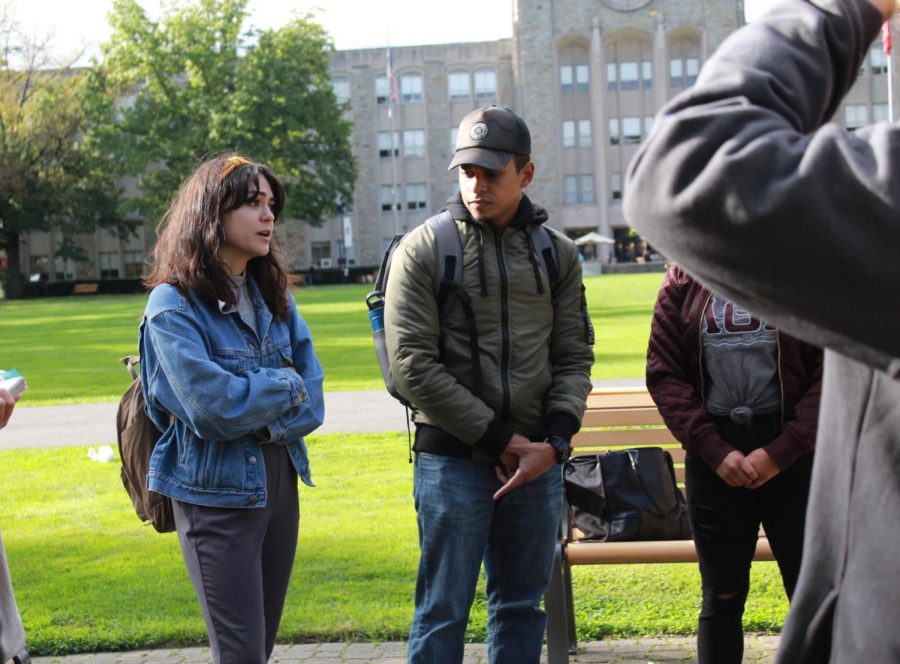

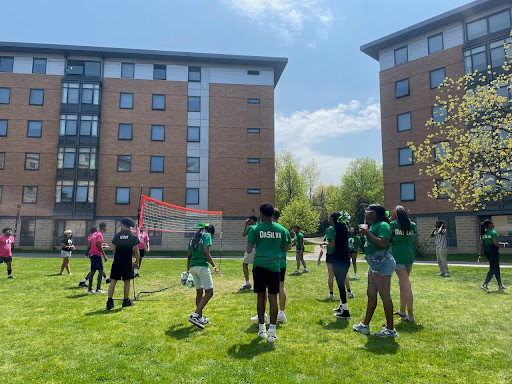
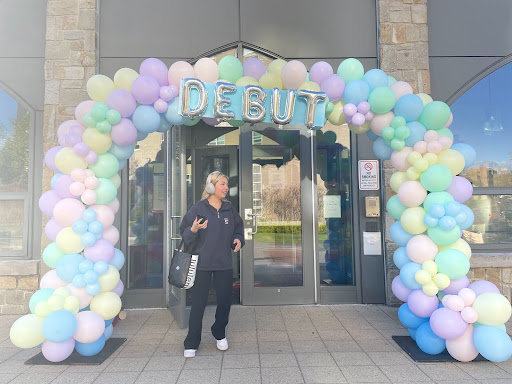
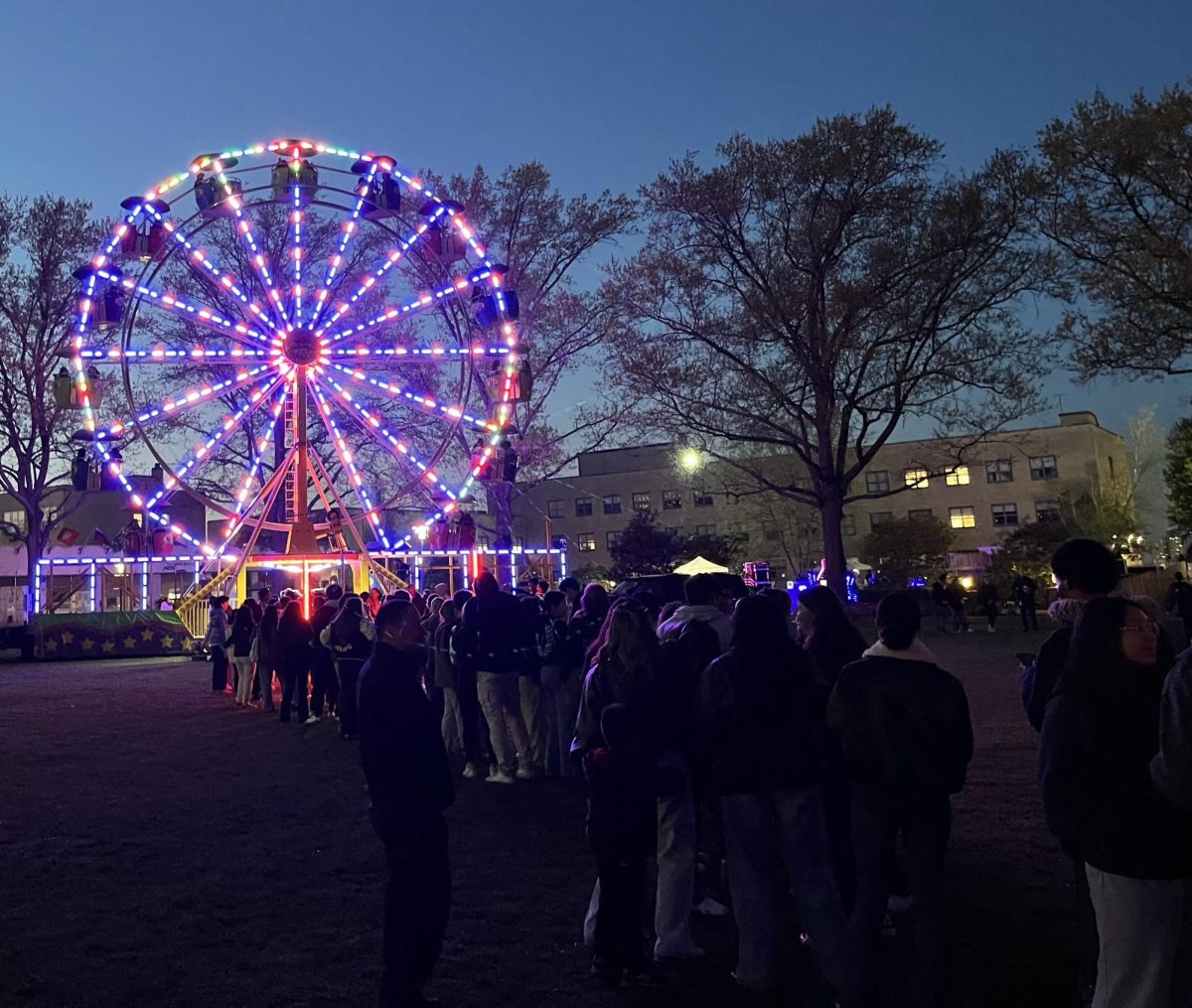
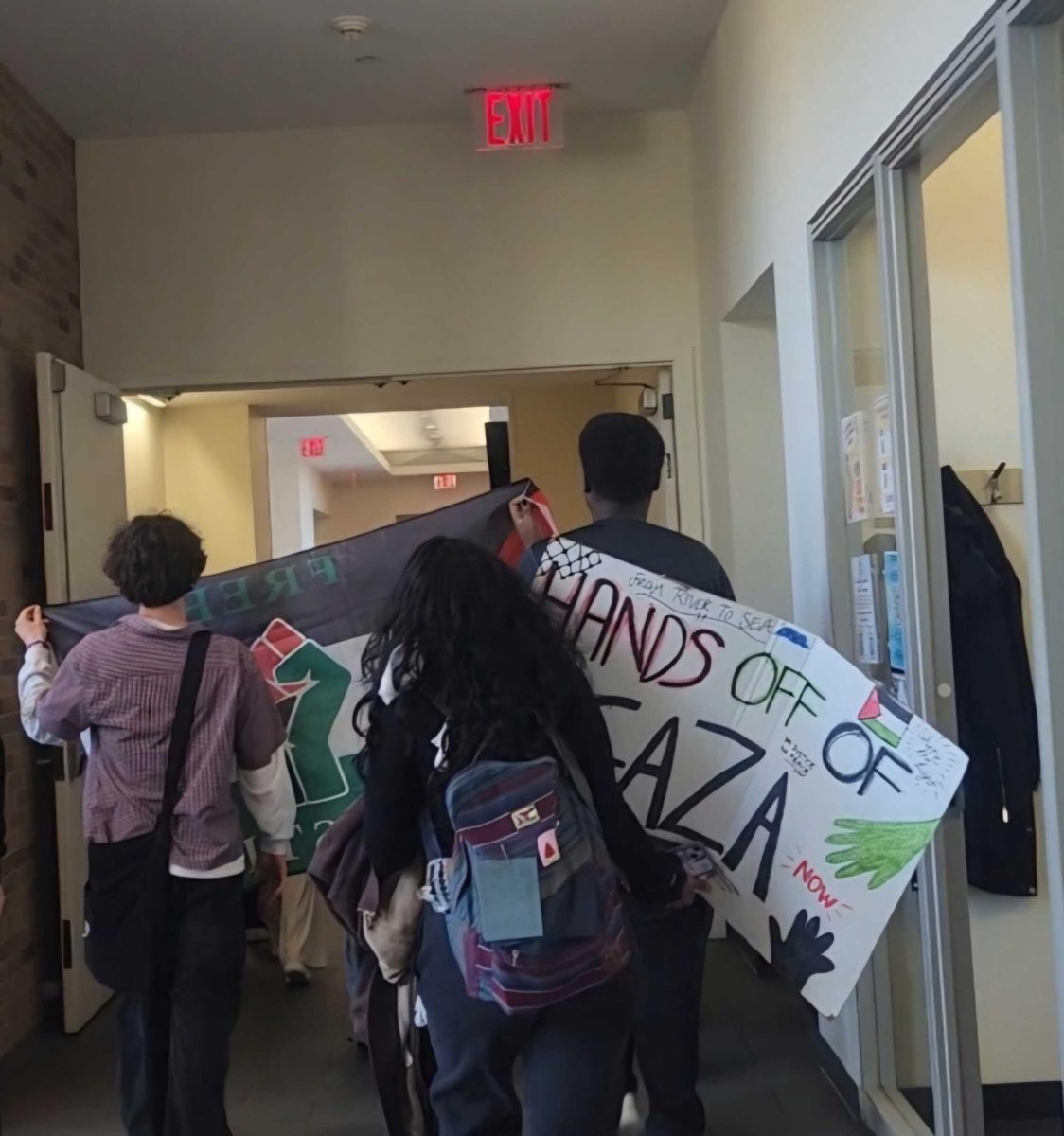
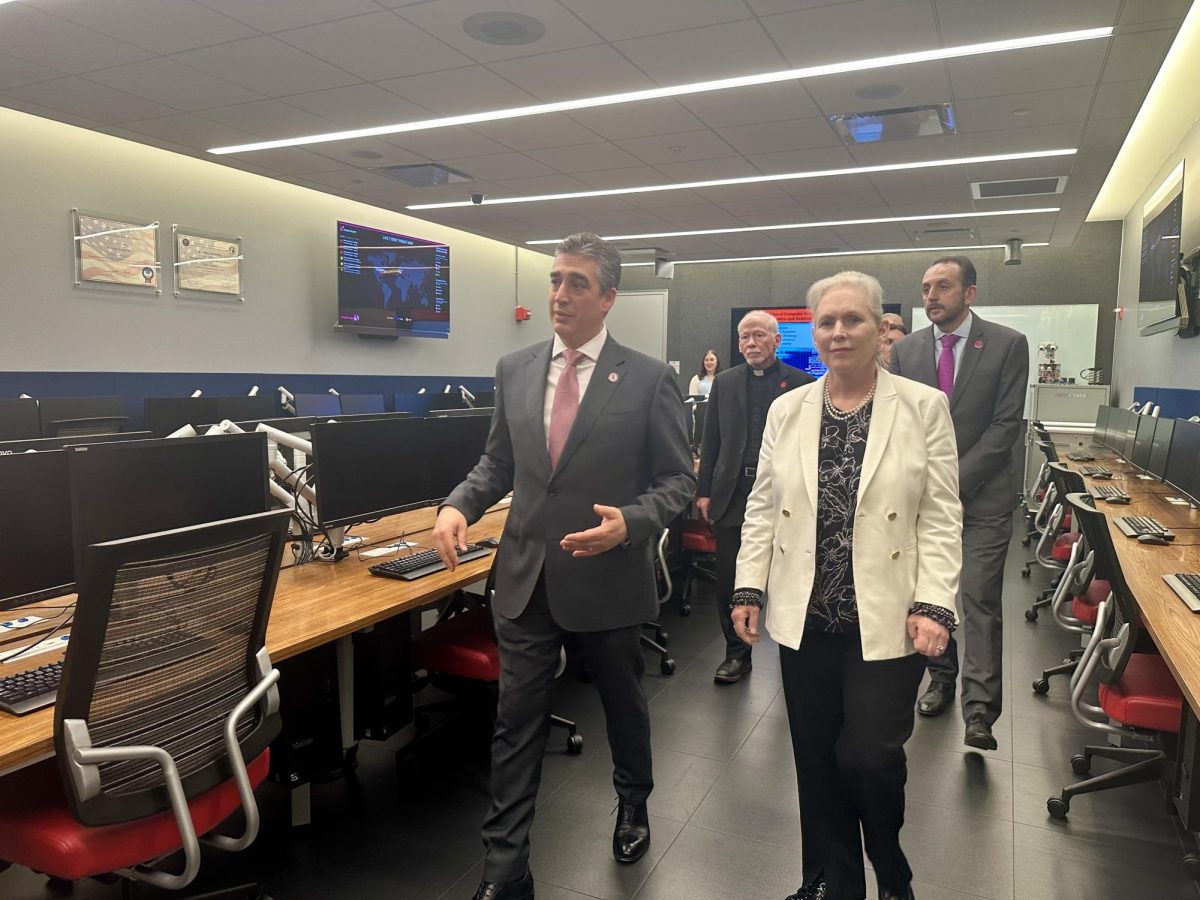
AmpieM • Oct 25, 2017 at 5:56 pm
Students voicing their concerns? I don’t think one knows the facts.
Democrats, MSM, every faculty member at any university in the country fighting to the death for illegal aliens? they put a warm and fuzzy name on it “Dreamers.” and no one seem to wonder why? future voters? can you imagine the Democrats ever being this interested or motivated in issues involving citizens! There is an estimated 800,000 DACA recipients in the US. That is 800,000 jobs American Citizens don’t have or will be in competition for.
The MSM and Democrats would have us believe that all 800 thousand are not taking jobs Americans want (we’ve heard that lie for many years now.) This is another falsehood told to the American people. Democrats have actually changed the language. It’s not illegal alien its “Immigrant.” (like the lie there just ‘Kids”) there not all picking strawberries they take great Jobs. Good enough jobs to buy homes put their kids through college.Why must the citizens of our country have competition for jobs, education in their own country from foreign nationals? Now Democrats and illegal alien activists admit DACA recipients have great jobs,are buying homes, paying taxes.
The GOAL, motivation (Democrats just haven’t figured this out yet) is for the American citizens to be employed, sending their kids to college, buying homes and paying taxes. It’s not the responsibility of the citizens of this country to support, educate citizens from other country’s.Deportation will save jobs and decrease the expense of illegal aliens.
“Some” of the costs associated with illegal immigration……Dollars and Blood.
*The cost of educating illegal aliens children is staggering. From K-12 it costs taxpayers $122,000 for EACH illegal alien student.
*Now city, and state officials are appropriating millions of taxpayer dollars for legal fees to to file law suits and in defense of illegal aliens being deported.
*2012 illegal aliens sent home $62 BILLION in remittances back to their countries of origin. This is why Mexico is getting involved in our politics.
*30% percent of all Federal Prison inmates are illegal aliens. Does not include local jails and State Prisons. At $21,000 per year expense per inmate in Federal Prison—U do the math.
*$3Million Dollars a DAY is spent to incarcerate illegal aliens, I repeat 3 MILLION a DAY to process Illegals in the Criminal justice system.
*$2.2Billion dollars a year is spent on food assistance programs such as SNAP (food stamps),WIC, & free school lunches.
There is also an incredible public safety issues.
http://www.ojjpac.org/memorial.asp
http://www.illegalaliencrimereport.com/
http://www.wnd.com/…/big-list-of-86-horrific-illegal…/